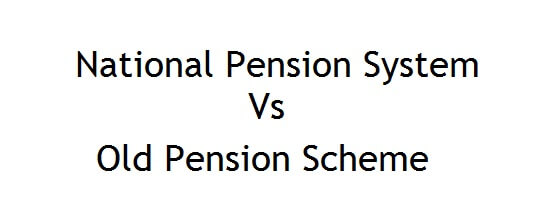Old Pension Scheme vs New Pension Scheme: OPS Vs NPS Difference in Benefits
Old Pension Scheme is a more popular among the state and central government employees. In recent years, The National Pension System or commonly known as NPS was implemented in various government departments for new recruits.
NPS Vs OPS
Main Difference
In the Old Pension Scheme, it was based on “Benefit Defined”. On the other hand, NPS is a Contribution Defined. In simple terms, #OPS has many advantages and NPS has more disadvantages.
Fixed Lock-in Period in NPS
It is one of the most popular disadvantages of NPS. In NPS, it has a fixed lock-in period. A government employee only withdraw the accumulated money after they retire from the job.However, a recent amendment allowed withdrawal of 25% fund of the employee contribution in case of emergencies.
Withdrawal Limit in NPS
In new pension scheme, the subscribers or read government employees can withdraw only 60% of the total amount accumulated. This amount is also comes under income tax! The remaining 40% amount must be invested in lifelong annuity scheme through an IRDA-regulated insurance company. It is one of the most important disadvantages while investing in new pension scheme.
NPS: Market-linked Scheme
NPS is a market-linked pension scheme. It does not guarantee any specific pension amount to the employees. On the other hand, GPF offers guaranteed fixed return.
If you invest less in NPS, the amount of pension may decreases too.
Protest After More Than One Decade
The information and benefits were not cleared among the government employees about NPS or fully known as The National Pension System. The employees were not clear about the benefits and disadvantages of NPS. In recent years, they were feeling that old pension scheme was better and NPS is just a waste of money.
It’s a rare issue which united various government departments across the states
Old Pension Scheme vs New Pension Scheme: OPS Vs NPS Difference in Benefits
 Reviewed by ADMIN
on
Wednesday, February 06, 2019
Rating:
Reviewed by ADMIN
on
Wednesday, February 06, 2019
Rating:
 Reviewed by ADMIN
on
Wednesday, February 06, 2019
Rating:
Reviewed by ADMIN
on
Wednesday, February 06, 2019
Rating:

No comments: